Are you a herbal tea drinker? In that case, you’ll wonder which teas are safe during pregnancy. Today, I will take you through the evidence on nine different types of herbal tea so that you know which ones are safe during pregnancy and which ones to avoid. Stay tuned! Herbal tea is well known for its many health advantages, which include heart health improvement and inflammation reduction. It’s not only tasty but also therapeutic. Due to this, not all teas are suitable to drink while pregnant.
Herbal Teas for Pregnancy Discomfort
As you can see, drinking herbal tea during pregnancy may help reduce unpleasant symptoms like acid reflux and morning sickness. However, drinking too much herbal tea while pregnant could harm the development and growth of your unborn child. There are many different options for herbal tea. Let’s examine which are and are not safe in more detail. Let’s look closer at which are safe and which are not. Here’s a list of herbal teas that can help address common discomforts during pregnancy
1. Chamomile tea
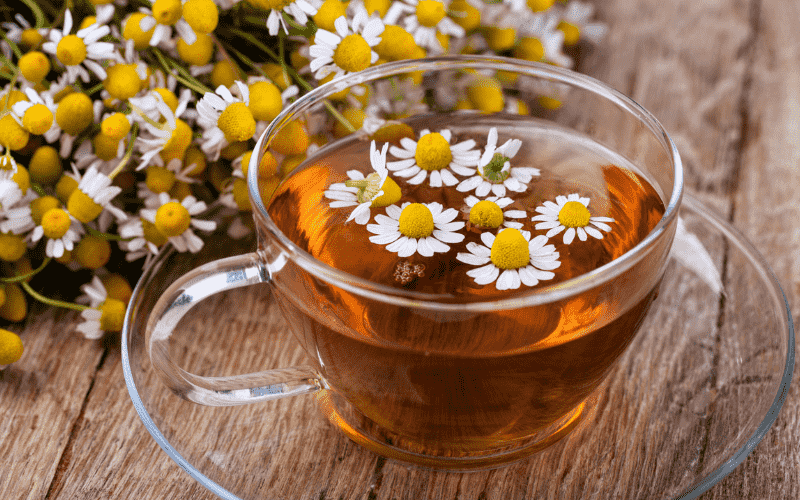
Firstly, unless specifically recommended by your healthcare professional, I’d recommend avoiding chamomile and ginseng tea. Chamomile tea is often consumed to relieve menstrual cramps and stomach aches. During pregnancy, it may be beneficial for easing the symptoms of morning sickness. However, research suggests that chamomile tea consumption during pregnancy has been connected with preterm delivery and low birth weight infants. There have also been a few documented cases of pregnant women experiencing anaphylaxis, so you need to be cautious with it.
When it comes to ginseng, authorities recommend that it should generally be avoided during the first trimester of pregnancy and used with caution if you choose to use it later in pregnancy. Studies show it has been linked with growth restriction, high blood pressure, and difficulty sleeping. There is still debate about the following herbal teas during early pregnancy, so I’d recommend limiting your intake to no more than one cup per day or two cups every other day, just to be on the safe side:
2. Ginger Tea
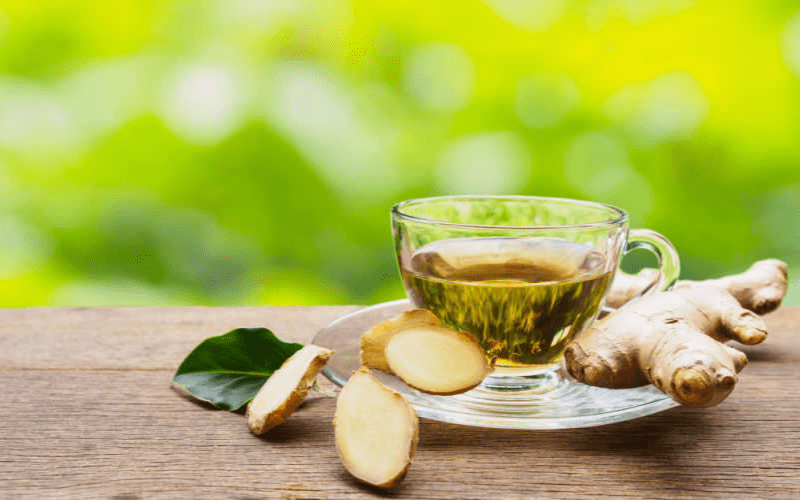
Ginger is rich in vitamin B6, which has been shown to ease nausea. Consumption of ginger tea during pregnancy may reduce pregnancy-related nausea. However, before consuming ginger tea during pregnancy, it should be noted that there have been studies that suggest ginger tea consumption may result in a shorter length of gestation and a reduced infant head circumference, so don’t guzzle it down
3. Green Tea
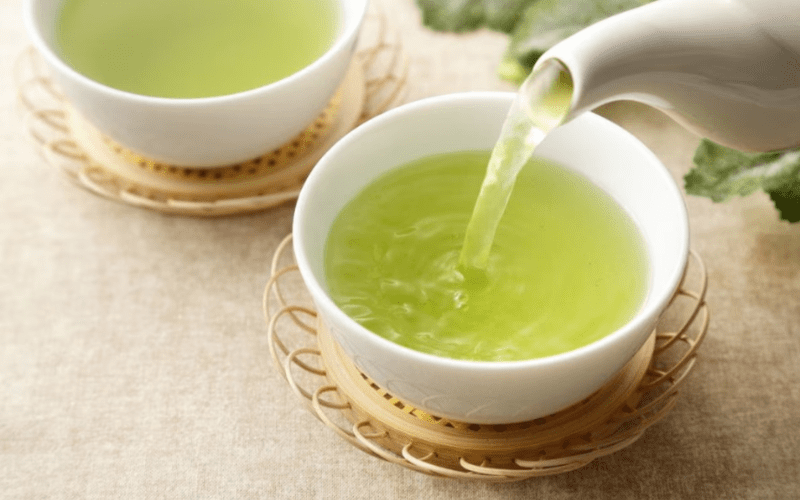
Green tea is rich in antioxidants and decrease inflammation. Some studies have shown that the anti-inflammatory properties may reduce fat mass and risks of obesity within offspring. However, Green tea contains caffeine, which means you need to take care to limit your intake. Too much caffeine has been associated with impacting the development of fetal organs.
4. Hibiscus Tea
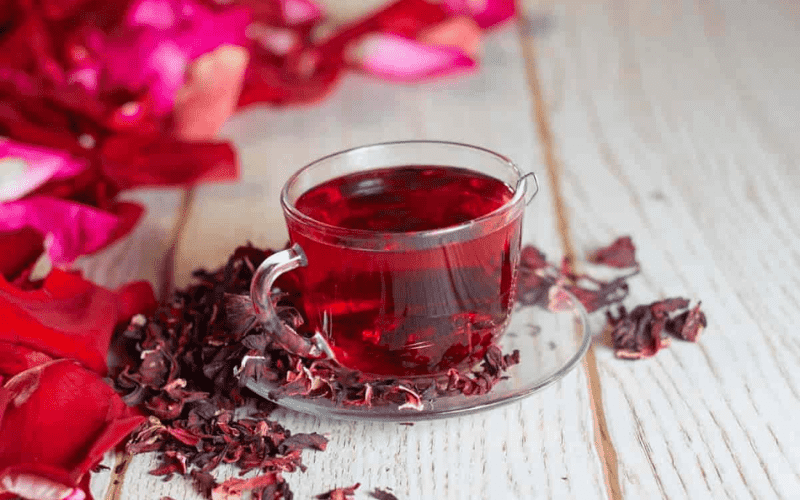
Hibiscus tea is popular as it has been shown to belowblood pressure and improve cardiovascular functioning. However, the impact of hibiscus tea during pregnancy hasn’t been studied, so until there’s more research, it’s wise to be cautious. Especially as blood pressure often fluctuates throughout Pregnancy.
5. Lemongrass Tea

Similarly, lemongrass tea appears to be relatively safe during pregnancy. However, it too may reduce blood pressure, which may increase feelings of dizziness and lead to further hypotension. So just be careful of how much you take.
6. Rooibos Tea
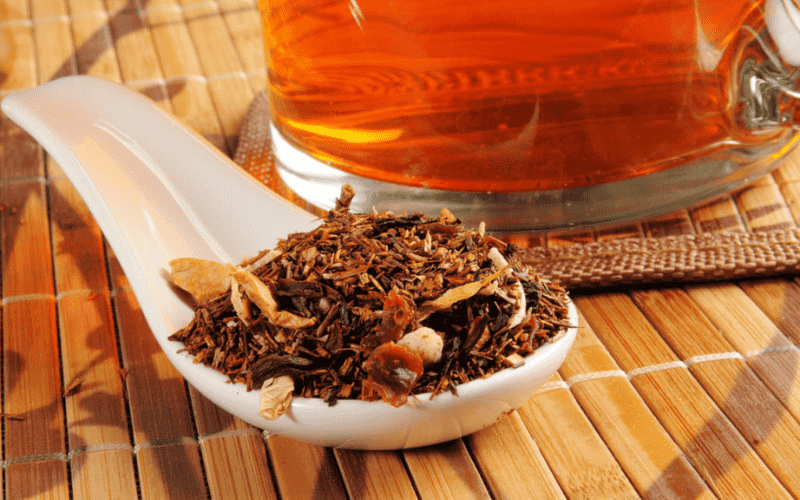
Although Rooibos tea is low in caffeine and has been shown to have anti-diabetic properties, but no studies have been undertaken to determine its safety during pregnancy, so until it’s properly studied, it’s recommended that it be limited. Now, if you want to drink herbal tea, these teas are my favorites for pregnancy. Remember, however, that herbal teas are unregulated, so the dose and quality can vary from brand to brand. It’s also wise to read the label to check for other additives. Based on current evidence, up to three cups per day of the following teas are safe:
7. Echinacea tea
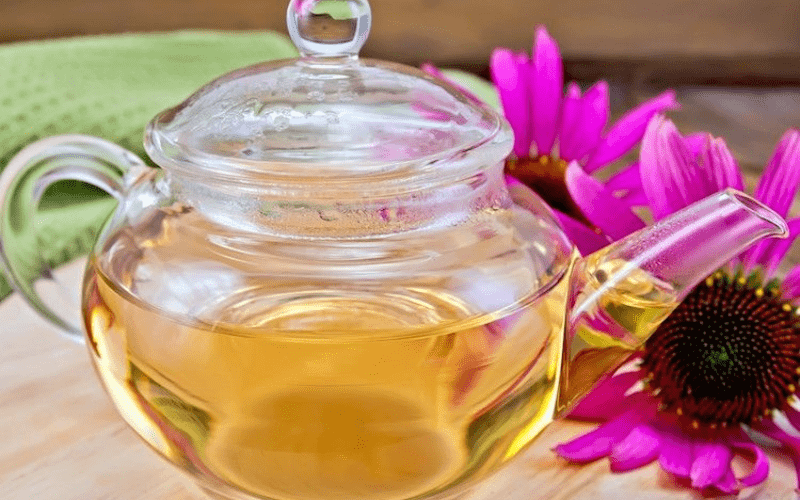
Echinacea tea is derived from wildflowers and has been used historically to treat a common cold. Current research suggests that it is safe to consume in moderation during pregnancy. Then, secondly, peppermint tea. The limited research suggests that peppermint tea is a safer herbal teas to consume during pregnancy. It has also been found to be beneficial for relieving nausea and preventing vomiting in some women. So that’s a good thing
Closing Thoughts on Herbal Teas
Yes, you can generally drink herbal teas during pregnancy but it’s important to do so in moderation and with caution. While many herbal teas are safe for pregnant women. Some herbs may have adverse effects or interfere with pregnancy. It’s crucial to consult with your healthcare provider before consuming any herbal teas to ensure they are safe for you and your baby. Additionally opting for commercially prepared herbal teas labeled as “pregnancy safe” can provide added assurance. Always follow your healthcare provider’s recommendations and avoid excessive consumption of any herbal teas during pregnancy.


